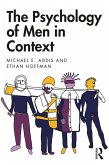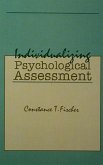The author draws on contemporary research and theory in varied fields--sociology, clinical psychology, psychiatry, social work, neuropsychology, behavioral genetics, child development, and education--to present a uniquely balanced, integrated, and readable summary of what we currently know about the causes and effects of violence. Throughout, she emphasizes the necessity of distinguishing among different types of violent behavior and of realizing that nature and nurture interact in human development. Controversial issues such as physical punishment and violent television programming receive special attention making this volume an important resource for all those concerned with violent offenders and their victims -- and for their students and trainees.
In this third edition of Understanding Violence, author Elizabeth Kandel Englander draws on contemporary research and theory in varied fields to present a uniquely balanced, integrated, and readable summary of what we currently know about the causes and effects of violence, particularly its effect on children. The goal of this textbook is to give a critical review of the most relevant and important areas of research on street and family violence, examining why it is that people become violent.
Between 1994 and 2004 the United States benefited from a dramatic decline in rates of violent crime. However, as the economy has weakened in recent years and tougher times have returned, the crime rate has shown signs of a modest
Dieser Download kann aus rechtlichen Gründen nur mit Rechnungsadresse in A, B, BG, CY, CZ, D, DK, EW, E, FIN, F, GR, HR, H, IRL, I, LT, L, LR, M, NL, PL, P, R, S, SLO, SK ausgeliefert werden.









